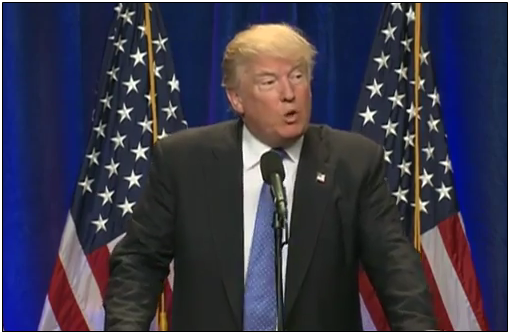In days leading up to the UK’s historic June 23 vote to leave the European Union, almost every single opinion poll had the Remain side winning.
Populus gave Remain a 55 to 45 percent lead. YouGov gave Remain a 51 to 49 percent edge. Ipsos Mori had it at 49 to 46 percent with 1 percent undecided.
Yet when referendum day came, it was Leave which had the distinct advantage, winning 52 to 48 percent — stunning prediction markets and pollsters alike, who were left to wonder what had just gone wrong.
The usual variety of explanations, like greater than expected turnout in Leave areas or less than expected turnout in Remain areas, or sampling error have been offered.
But perhaps a significant percent of people polled lied to the pollsters about their true intentions, or simply those who were intent on voting Leave were more likely to opt out of the poll.
Which after a year of a media and political establishment barrage against the Leave campaign as racist, xenophobic, and the like, and they would crash the economy and send the UK into a depression. Significantly, supporters of Leave were even blamed for the assassination of an MP in the closing days of the campaign.
None of it happened to be true. But who wants to be called a racist for not wanting open borders or unbridled trade policies that ship jobs overseas? Or crashing the economy? Or worse, blamed for the murder of members of Parliament?
A similar situation could be emerging across the pond in the U.S., where Donald Trump trails Hillary Clinton in national and statewide polls.
Here, the media and political establishment here consistently characterize Donald Trump as racist and xenophobic, and portray his supporters as violent — even as Trump supporters are being assaulted by protesters on television. They are told Trump’s trade and immigration policies will kill the U.S. economy and those who support them are economically illiterate.
Sound familiar?
Maybe Trump supporters are less likely to want to be identified. Not necessarily out of shame, but out of fear of being physically bloodied or damaged professionally. Perhaps that is being reflected in the polls.
UK Independence Party leader Nigel Farage told CNBC on June 28 that is exactly what happened in the UK with the Brexit polls failing to predict the final outcome, and may be what is happening in the U.S., too. “There’s kind of this consensus that has made people feel slightly embarrassed, ashamed to be patriotic, to believe we should control immigration, and so when pollsters ring them they tend to shy away a little bit,” Farage suggested.
He may be on to something. Consider just how wrong the polls were in Republican presidential primary when it was still competitive a few months ago. The Real Clear Politics average of polls in Indiana had Trump at 43 percent to 32 percent. Instead, Trump got 54 percent of the vote.
In Pennsylvania polls said Donald Trump up 48 percent to 27 percent. Instead, he won 58 percent to 22 percent.
In Maryland, the average had Trump up 47 percent to 26 percent. Instead, he won 56 percent to 23 percent.
In Connecticut, the polls said Trump was at 54 percent, but then he over performed again at 59 percent.
In Rhode Island, the polls had Trump at 52 percent. Wrong again, he came in at 65 percent.
In Delaware, the polls said 55 percent. Voters said 63 percent.
In New York, the polls had said Trump would get 53 percent, but instead he hit 60 percent there.
Trump beat the poll estimates by up to 13 points in some states when election day finally came around. Simply incredible.
So perhaps Trump supporters are keeping quiet, and that is what is consistently turning up in the polls. You may not see their bumper stickers or lawn signs. Perhaps they don’t want their windows smashed. But they intend to vote for him all the same.
In Pittsburgh on June 28 Trump told voters, including disaffected labor Democrats, that “America became the world’s dominant economy by becoming the world’s dominant producer. The wealth this created was shared broadly, creating the biggest middle class the world had ever known. But then America changed its policy from promoting development in America, to promoting development in other nations. We allowed foreign countries to subsidize their goods, devalue their currencies, violate their agreements, and cheat in every way imaginable. Trillions of our dollars and millions of our jobs flowed overseas as a result.”
Trump added, “Ladies and Gentlemen, it’s time to declare our economic independence once again.”
We’ll know soon enough if a silent majority follows Trump’s call and puts him in the White House. Trump is running a Brexitonian style campaign of restoring U.S. sovereignty, stopping illegal immigration and securing better trade agreements. It is this pitch that Trump hopes will transcend traditional party loyalties, and throw off the conventional calculations that typically predict the final outcome of presidential elections.
But one cannot deny that 2016 is already shaping up to be a year that defies the expectations of the political and media establishment — all over the world.
The only people who have a clear idea of which way things are actually going are voters — and they might not be cooperating with pollsters.
Think Hillary Clinton has this in the bag? Ask outgoing British Prime Minister David Cameron if he still believes the polls.
Robert Romano is the senior editor of Americans for Limited Government.







